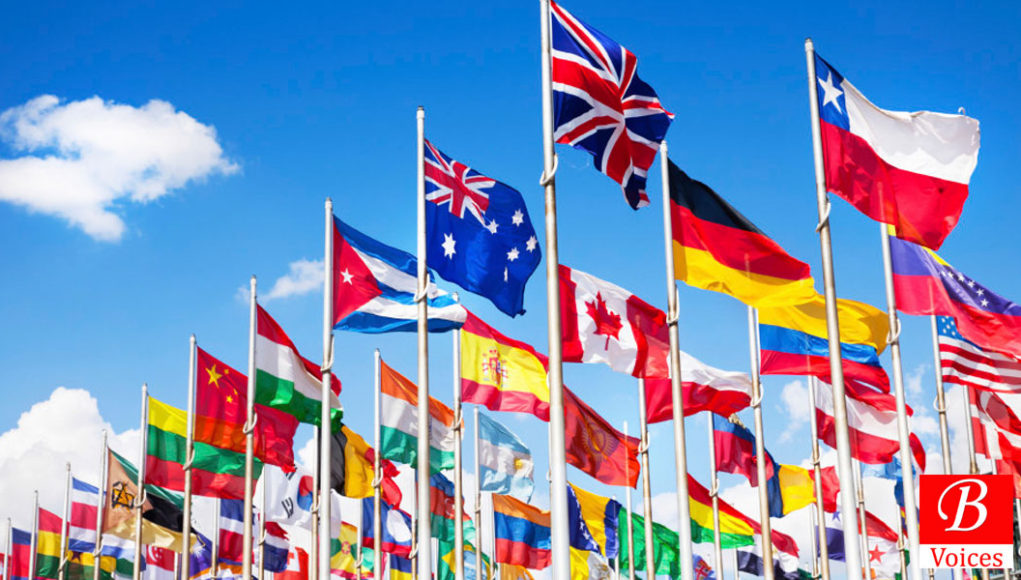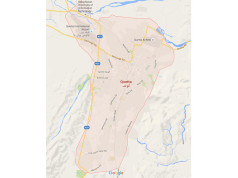Anwar Noor Baloch
On Saturday 30 April 2005, nine million mobile phone users in Beijing received a text message. The message was from the police and read: ‘Express patriotism rationally. Don’t take part in illegal protests. Don’t make trouble. Help by not creating trouble, love the nation by not breaking the law’.
The message seems to be good initiated by the police. The question is why such protest should happen and why people go for protest? It is may be many nations in the world don’t want to be dominated by unnecessary policies and rules or may be the justice was not in place.
According to Pierre-Joseph Proudhon that: to be governed is to be watched, inspected, spied upon, directed, law-driven, numbered, regulated, enrolled, indoctrinated, preached at, controlled, checked, estimated, valued, censured, commanded, by creatures who have neither the right nor the wisdom nor the virtue to do so.
I do agree that the subject is a half negative. Many positive minded people suggest or have in mind that the subject should have purely been positive. If it was positive, then it would have been written in the way of “what makes a state to clime and develop? Is the state about a land or it is about the people? So what is the origin of the state? Henry 1 of England who was presaged, after his coronation once that: “You are the servant of servants of God and not their master; you are the protector and not the owner of your people”.
Analytically, today’s world generations are not easy to be fooled or governed by false statements expressed by smart politicians or by the corrupt rulers. Once I was watching one of the Arabic TV channels where an Egyptian protester shouting on Hosni Mubarak and saying that: ‘He used to fool us for last thirty years’. The nation of Libya was fed up of Omar Al Qadhafi, saying that: “He looted the national economy and never distributed it to us”. The opposition of Bashar Al Hasad is saying that: ‘This is the corrupt system in which we are living in today, it must be changed”.
At current dilemma, there are many economical and political queries in peoples mind, such as: will America and North Korea go for a war? Will Iran and America also go for a war? Will Cypress continue facing the problem of cash flow? Will Syria continue in crumbling? Will world economy get worse? Will some states collapse? Today, these are the hot discussions and debates in many forums. In face book, in twitter, and in many other international newspapers, like Economists, New York Times, and Financial Times, where similar topics and opinions are observed and read.
I found such topics are well read, the simple reason is because everyone is involved the way or the other, and the two basic questions in the both levels “Individuals and States” are what I am going to lose? Or, what I am going to benefit? States may lose the power and individuals may lose the opportunity of living in good standard. Business people may lose the opportunity of investment.
People live in a world led and dominated by states that claims right over them. For examples: rights to command, to punish and to instruct. By living in a state it means that you will be having your rights and your duties. You will be obliged to obey and respect those rules and regulations of the state, otherwise you will be punished. Historians, suggest that over many millennia of human history people lived without states, taxes, armies or officials.
Thinkers and intellectuals wish like a child saying that: the world would be better place to live if there are no boundaries or in a simple way of saying that: “not to have states”. Children can wish of many things, too. They sometimes can say it is better than the thinkers, and in an innocent way. If you are not practical, then all your wishes and dreams are meaningless.
History talked a lot about building and collapsing of Rome. Everyone is cautious that what may occur globally. Currently, there are many states are in risk because of other two states’ clashes and conflicts. It is not easy now to say that it is not my problem as a state. Indeed, it is now your problem, believe it or not. What happened to Egypt, happened to Tunis, what happened to Tunis, happened to Libya, what happened to Libya, happened to Syria and it’s moving. The root causes of all such up risings are the government policies and the bureaucrats’ mindset. According to many columnists, that ordinary people of those states were never appreciated. These might be the internal forces or elements where it takes the states to fall. Iraq was one of the earlier examples.
The second force is the external force that how the foreign powers want to see you as a state? Is there an international political game happening, or is there any “need and greed” behind that economical and political movement? What can be their interests as states? What was the interest of America invading Iraq in late 90s? What is the interest of America of not succeeding to resolve the conflict of Palestine and Israel?
The best way of making the state strong is its economic and political system. History is witnessed where many empires crumbled due to weak, and aged economic and political system, that some systems had to be changed according to the situation and demand of people. Good system will consist even after the death of the good rulers, and bad system will perish within the current and existing rulers. Occasional rulers like Asoka of India, who could not establish a state system, therefore, after his death his empire crumbled in 232 BCE. Good power and bad power a book wrote by Geoff Mulgan in which it has quoted some words of Adam Smith who had said that: “Little else is required to carry a state to the highest degree of opulence from the lowest barbarism but peace, easy taxes, and a tolerable administration of justice; all the rest being brought about by the natural course of things”.
It is good to ask that if the new knowledge can bring the technological revolution, can it also bring changes in rulers’ behaviors and mindset.
Disclaimer: Views expressed in this article are those of the author and Balochistan Voices not necessarily agrees with them.
Share your comments!








